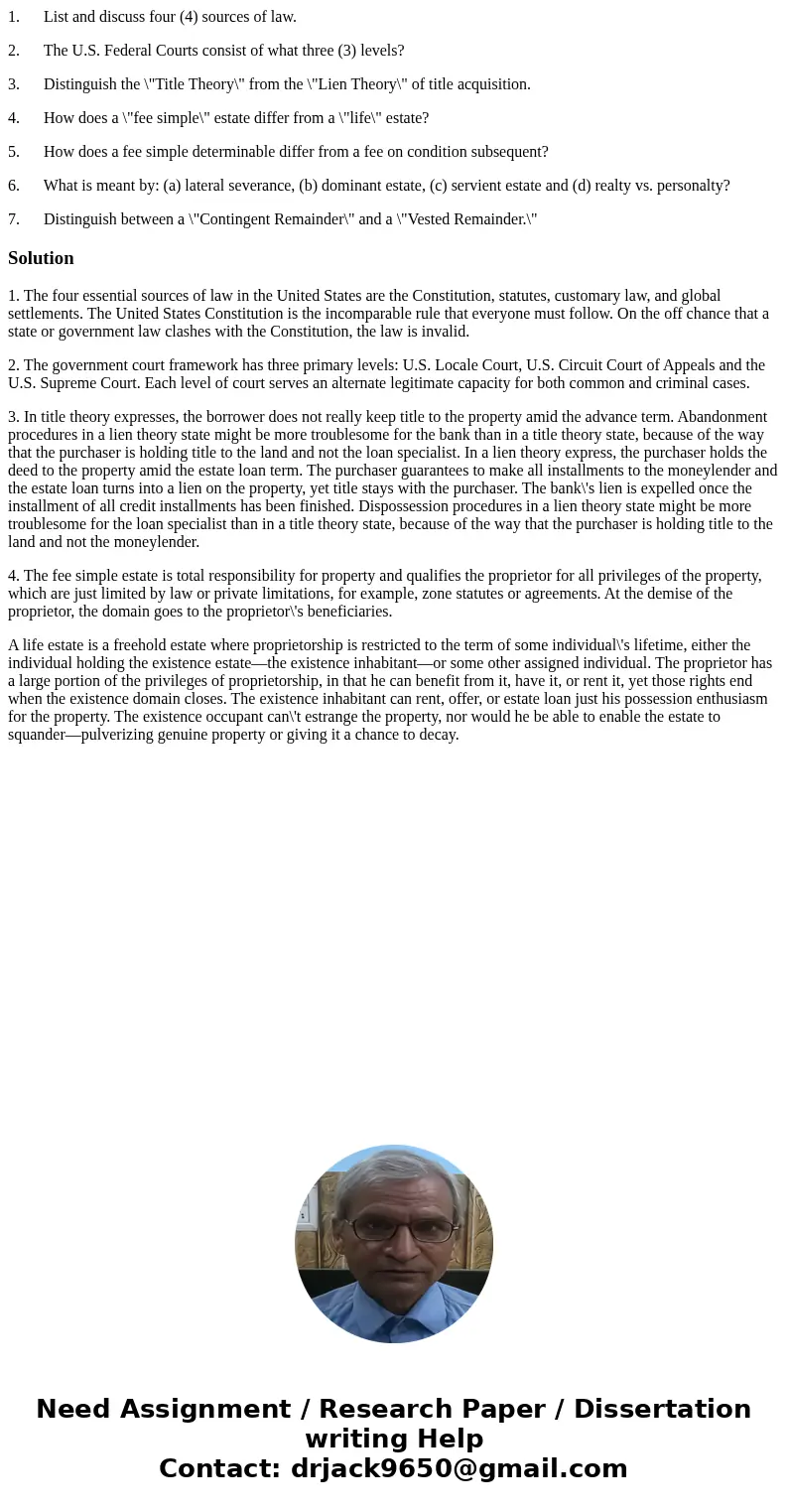1 List and discuss four 4 sources of law 2 The US Federal Co
1. List and discuss four (4) sources of law.
2. The U.S. Federal Courts consist of what three (3) levels?
3. Distinguish the \"Title Theory\" from the \"Lien Theory\" of title acquisition.
4. How does a \"fee simple\" estate differ from a \"life\" estate?
5. How does a fee simple determinable differ from a fee on condition subsequent?
6. What is meant by: (a) lateral severance, (b) dominant estate, (c) servient estate and (d) realty vs. personalty?
7. Distinguish between a \"Contingent Remainder\" and a \"Vested Remainder.\"
Solution
1. The four essential sources of law in the United States are the Constitution, statutes, customary law, and global settlements. The United States Constitution is the incomparable rule that everyone must follow. On the off chance that a state or government law clashes with the Constitution, the law is invalid.
2. The government court framework has three primary levels: U.S. Locale Court, U.S. Circuit Court of Appeals and the U.S. Supreme Court. Each level of court serves an alternate legitimate capacity for both common and criminal cases.
3. In title theory expresses, the borrower does not really keep title to the property amid the advance term. Abandonment procedures in a lien theory state might be more troublesome for the bank than in a title theory state, because of the way that the purchaser is holding title to the land and not the loan specialist. In a lien theory express, the purchaser holds the deed to the property amid the estate loan term. The purchaser guarantees to make all installments to the moneylender and the estate loan turns into a lien on the property, yet title stays with the purchaser. The bank\'s lien is expelled once the installment of all credit installments has been finished. Dispossession procedures in a lien theory state might be more troublesome for the loan specialist than in a title theory state, because of the way that the purchaser is holding title to the land and not the moneylender.
4. The fee simple estate is total responsibility for property and qualifies the proprietor for all privileges of the property, which are just limited by law or private limitations, for example, zone statutes or agreements. At the demise of the proprietor, the domain goes to the proprietor\'s beneficiaries.
A life estate is a freehold estate where proprietorship is restricted to the term of some individual\'s lifetime, either the individual holding the existence estate—the existence inhabitant—or some other assigned individual. The proprietor has a large portion of the privileges of proprietorship, in that he can benefit from it, have it, or rent it, yet those rights end when the existence domain closes. The existence inhabitant can rent, offer, or estate loan just his possession enthusiasm for the property. The existence occupant can\'t estrange the property, nor would he be able to enable the estate to squander—pulverizing genuine property or giving it a chance to decay.

 Homework Sourse
Homework Sourse